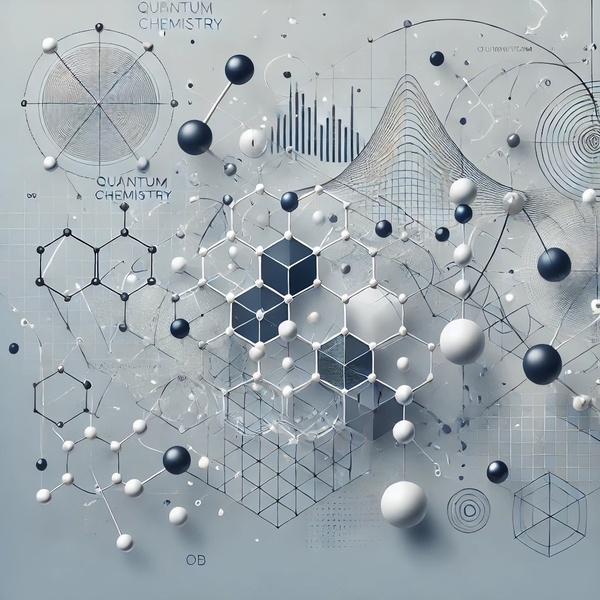Doctoral Programs at the Department
The Department of Physical and Macromolecular Chemistry is pleased to present its diverse range of doctoral study programs for the academic year 2025. Each program is designed to provide in-depth training and research experience over a period of 3 to 4 years. Covering topics from biophysics and catalysis to advanced computational methods, these programs offer students the chance to contribute to important scientific advancements under the guidance of experienced supervisors.
These positions offer unique opportunities to be part of cutting-edge research projects at an internationally recognized institution. Students will have access to state-of-the-art laboratories, computational resources, and collaboration networks involving leading scientists from across the globe.
For more details about individual topics, deadlines and application procedures, please contact the relevant supervisors or visit the official website to enroll. We look forward to welcoming enthusiastic candidates to join our research community.
Advanced Materials and Catalysis
Development of MXene-Based Hybrid Catalysts for Efficient Photo-electrochemical Hydrogen Production
-
Supervisor: Eliášová Pavla, Mgr., Ph.D.
-
Summary: Synthesis, modification, and detailed characterization of MXenes
Design of Nanomaterials by Concerted Structural and Chemical Modification of Labile Precursors
-
Supervisor: Opanasenko Maksym, doc., CSc.
-
Summary: Expand the top-down approach for generating zeolites and explore chemical transformations to modify framework structures for catalytic applications.
Stabilization of Metal Nanoparticles by Defects of 2D Zeolites
-
Supervisor: Mazur Michal, Ph.D.
-
Summary: Synthesize and study 2D zeolites for stabilizing metal nanoparticles, enhancing their catalytic performance and sintering resistance.
Design of Advanced Catalytic Materials by Top-Down Construction
-
Supervisor: Eliášová Pavla, Mgr., Ph.D.
-
Summary: Use the ADOR method and other top-down strategies to construct zeolite-based materials with tailored catalytic properties.
Computational Simulations and Nanomaterials Modelling
Theoretical Study of Chemical Reaction Mechanisms
-
Supervisor: Uhlík Filip, prof. RNDr., Ph.D.
-
Summary: Employ quantum chemistry and statistical thermodynamics to investigate reaction mechanisms in complex catalytic and enzymatic systems.
Modeling of the Gibbs-Donnan Equilibrium in Protein Solutions
-
Supervisor: Košovan Peter, doc. RNDr., Ph.D.
-
Summary: This research models the Gibbs-Donnan equilibrium in protein solutions to predict pH shifts and optimize conditions for industrial processes like protein purification.
Ionization of Weak Polyelectrolytes in the Semidilute and Entangled Regimes
-
Supervisor: Nová Lucie, Ing., Ph.D.
-
Summary: This research investigates how external conditions such as pH and ionic strength influence the behavior and ionization of weak polyelectrolytes in dense solutions.
Operando Modeling of Porous Catalytic Nanomaterials via Machine Learning
-
Supervisor: Heard Christopher James, Ph.D.
-
Summary: Application of machine learning-driven methods to model the dynamic behavior of porous catalytic nanomaterials, with the goal of improving catalytic efficiency.
ML-Assisted Design and Characterization of Oxide Materials for Sustainable Catalysis
-
Supervisor: Heard Christopher James, Ph.D.
-
Summary: This program uses machine learning and quantum chemistry-based models to accelerate the design of oxide materials, enhancing their performance in catalysis for sustainable applications.
Developing Machine Learning Tools for Reactive Atomistic Material Modeling
-
Supervisor: Grajciar Lukáš, doc. RNDr., Ph.D.
-
Summary: The project focuses on developing and applying machine learning models for atomistic simulations of materials, enhancing our ability to predict material properties and chemical reactivity.
Coarse-Grained Models for Quantitative Prediction of Soft Matter Properties
-
Supervisor: Košovan Peter, doc. RNDr., Ph.D.
-
Summary: Development of coarse-grained models to predict the behavior of soft matter systems, such as polymers and colloids, facilitating advances in material design and industrial applications.
The Role of Acid-Base Equilibria in Polyelectrolyte Solutions
-
Supervisor: Košovan Peter, doc. RNDr., Ph.D.
-
Summary: Electrostatic interactions are one of the main driving forces behind the behavior of charged polymers, such as polyelectrolytes. This research focuses on understanding how acid-base equilibria impact their aggregation and stability, leading to advances in various practical applications.
Polymer Chemistry and Biomaterials
Functional Polymers and Boron-Based Nanostructures for Biomedical Applications
-
Supervisor: Uchman Mariusz Marcin, Ing., Ph.D.
-
Summary: Develop polymeric materials containing boron clusters and phenylboronic acids for diagnostic and therapeutic biomedical applications.
Synthesis of Advanced Stimuli-Responsive Polymers for Biomedical Applications
-
Supervisor: Sedláček Ondřej, RNDr., Ph.D.
-
Summary: Design stimuli-responsive polymers for medical devices and drug delivery systems using modern polymerization techniques.
Synthesis of Smart Polymer-Coated Nanomaterials for Pickering Interfacial Catalysis
-
Supervisor: Sedláček Ondřej, RNDr., Ph.D.
-
Summary: Develop stimuli-responsive polymers to coat nanoparticles, enabling control over catalytic activity and product separation in Pickering emulsions.
Development of Conjugated Hyper-Cross-Linked Porous Organic Polymers
-
Supervisor: Sedláček Jan, doc. RNDr., Dr.
-
Summary: Design and develop porous organic polymers for use in sorption and catalysis. This research will focus on combining porosity with intrinsic molecular functionality.
Polymeric Materials with Covalently Attached Anionic Boron Clusters
-
Supervisor: Matějíček Pavel, prof. RNDr., Ph.D.
-
Summary: This project involves developing polymeric materials containing anionic boron clusters for ion-conducting applications. Synthesis and characterization of polymer nanostructures will be a key part of this study.


